Climate Thursdays are held in collaboration with leading researchers from the University of Southern Denmark and several other Danish and international universities, experts from the Danish Council on Climate Change, the Geological Survey of Denmark and Greenland as well as companies, think tanks, institutions and organisations.
This high profile symposia series focus on the state of our climate and on the technical, behavioural, financial and political solutions and actions taken to meet the current climate challenges.
Climate Thursdays kicks off on 5 September 2024 and continue the following Thursdays until mid-November.
Below you can see the dates, themes and speakers of the individual seminars. All the webinars will be recorded and placed under the tab of the respective date immediately after each seminar. We reserve the right to make any alterations in the programme.
We look forward to seeing you at the Climate Thursdays.
Henrik Wenzel & Sebastian Mernild
Video of today's webinar
Sebastian Mernild's presentation Present state of the climate and expected future development
Sara Egemose's presentation Status on the hydrological challenges in a climate adaptation perspective
Introduction, climate status and future perspectives
08.00 - 08.10
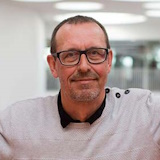
Henrik Wenzel is professor at the Center for Life Cycle Engineering, Department of Green Technology at University of Southern Denmark. His research focuses on environmental system analysis and system design aiming at optimizing large infrastructure systems such as energy systems and waste management systems in a holistic perspective. He has studied a large variety of alternative fuels for future transport including both biofuels and so-called electrofuels made from CO2 and hydrogen and has worked in close collaboration with key partners in aviation and shipping.
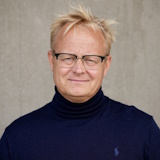
Sebastian Mernild, Professor and Head of SDU Climate Cluster.
Sebastian Mernild, Professor in Climate Change and Glaciology at SDU, PhD and Dr. Scient. Author on the IPCC AR6 and AR5 Working Group 1 Climate Report. He has worked in the US for seven years at the International Arctic Research Center, University of Alaska Fairbanks, at Los Alamos National Laboratory in New Mexico and three years as senior research scientist/research leader at Centro de Estudios Científicos in Chile. Further, he has worked in Norway as full professor in Climate Change and Glaciology and as Director of the Nansen Center in Bergen.
Henrik and Sebastian will give an introduction to the symposia series idea and plan.
08.10 - 08.40
Sebastian Mernild will present the state of the climate and the expected future development
08.40 - 09.10

Sara Egemose, Associate Professor in the Ecology group at Department of Biology, University of Southern Denmark and affiliated Associate Professor at SDU Climate Cluster.
Sara holds a PhD in freshwater ecology. She is an expert within environmental effects of discharges from both urban and rural areas – very often with focus on climate adaptation and water handling technologies by nature-based solutions. She is a member of several boards and committees e.g. The Danish Water Pollution Committee and she is an experienced project coordinator and partner within applied and innovative research projects. She is currently also a member of Aqua-NbS - Elite Centre of Aquatic Nature-based Solutions for Climate Change adaptation and mitigation.
Sara will give a lecture on the Status of the hydrological challenges in a climate adaptation perspective
Video of today's webinar
Jason Box' presentation Arctic land ice, global sea level changes and storm surges
Carsten Rahbek's presentation Nature-based solution to climate change
Katherine Richardson's presentation How far have we come in exceeding our planetary boundaries?
Impacts on the planet
08.00 - 08.30

Jason E. Box is a professor in glaciology at the Geological Survey of Denmark and Greenland (GEUS) and an expert on the Greenland ice sheet. He has participated in more than 30 scientific expeditions to Greenland, been first author of several research papers on climate change in the Arctic and is often used as climate expert in both Danish and international media.
Jason holds a degree in Geography from the University of Boulder, Colorado. He received his PhD in 2001 with his dissertation: "Surface water vapor exchanges on the Greenland ice. He is a contributing author to the most recent three Intergovernmental Panel on Climate Change (IPCC) scientific assessment reports; and the lead author on recent Arctic Monitoring and Assessment Program (AMAP) reports.
Jason will give a lecture on The Arctic land ice, global sea level changes and storm surges
08.30 - 09.00

Carsten Rahbek is a professor in Biodiversity and Director of the Center for Macroecology, Evolution and Climate ((www.macroecology.ku.dk) and Director of the Villum Center for Global Mountain Biodiversity at the GLOBE Institute, University of Copenhagen, and holds additional professorships at the SDU, Imperial College (UK) and Peking University (China). He is a world-leading scientist with key research in biodiversity focusing on what determines distribution and diversity of life on Earth. He also conduct research in economy, climate and human health. Carsten Rahbek has broad experience both globally, regionally and nationally in science-policy applied activities. He has assisted decision-makers in the Danish Parliament and ministries, some of Denmark’s largest companies and international institutions such as UNEP, IPCC, FAO and the World Bank on issues related to biodiversity. He acted as a scientific advisor to the Presidency of the European Union in the establishment of the Intergovernmental Panel for Biodiversity and Ecosystem Service (IPBES) in 2011-2012 and leads today IPBES in Denmark on behalf of the Danish universities. He is also member of the governmental Biodiversity Council.
Carsten will give a lecture on Nature-based solutions to climate change
09.00 - 09.30
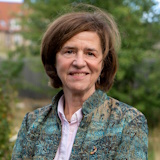
Katherine Richardson is a professor in biological oceanography at the University of Copenhagen, leader of the Sustainability Science Centre (www.sustainability.ku.dk), a principle investigator in the Center for Macroecology, Evolution and climate (www.macroecology.ku.dk), and Leader of theQueen Margrethe’s and Vigdís Finnbogadóttir´s Interdisciplinary Research Centre on Ocean, Climate, and Society (www.ROCS.ku.dk). Her research focuses on the importance of biological processes in the ocean for the uptake of CO2 from the atmosphere and how ocean biology, including diversity, contributes to ocean function in the Earth System. Katherine is also a core developer of the Planetary Boundaries framework that attempts to identify a safe operating space for humanity in its impact on global resources. KR holds a Bachelor’s Degree from Harvard College (1976), a PhD from the University of Wales (awarded while on a Marshall Fellowship) and a D.Sc. from the University of Copenhagen.
Katherine will give the lecture: How far have we come in exceeding our planetary boundaries?
Video of today's webinar
Steffen Loft's presentation Health with focus on aspects of temperature varation
Solveig Roepstorff's presentation Eco-distress
Impacts on society/humans
08.00 - 08.30
 Steffen Loft, Professor at the Department of Public Health, the University of Copenhagen. His research primarily focuses on the mechanisms by which air pollution and particulate matter cause oxidative stress and inflammation, leading to adverse health outcomes. He has published numerous high-impact articles in leading scientific journals, contributing to the global discourse on environmental health.
Steffen Loft, Professor at the Department of Public Health, the University of Copenhagen. His research primarily focuses on the mechanisms by which air pollution and particulate matter cause oxidative stress and inflammation, leading to adverse health outcomes. He has published numerous high-impact articles in leading scientific journals, contributing to the global discourse on environmental health.
He is a prominent figure in the field of environmental health, known for his extensive research and contributions to understanding the impacts of air pollution and climate change on human health. Holding a DMSc in Medicine from the University of Copenhagen, Professor Loft's work has significantly advanced our knowledge of how environmental factors influence respiratory and cardiovascular diseases.
Steffen will give a lecture on Health with focus on aspects of temperature variation
08.30 - 09.00
 Solveig Roepstorff is a psychologist, relational biological trauma-therapist and author of the book “Klimapsykologi” (2022). She is a member of the Climate Psychology Alliance and active in the international network Climate Psychology for a Just Future, which works on using psychology to help us mobilize collective action in the climate crisis.
Solveig Roepstorff is a psychologist, relational biological trauma-therapist and author of the book “Klimapsykologi” (2022). She is a member of the Climate Psychology Alliance and active in the international network Climate Psychology for a Just Future, which works on using psychology to help us mobilize collective action in the climate crisis.
Solveig will give a lecture on Eco-distress
Video of today's webinar
Jørgen E. Olesen's presentation Agriculture, food production, supply and challenges/dilemmas
Peter Lund's presentation Cattle & climate
Robin Ørnsrud's presentation Aquaculture
Solution to climate change: Agriculture and aquaculture
08.00 - 08.30
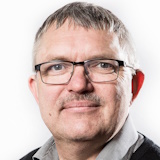 Jørgen E. Olesen, Professor, Aarhus University.
Jørgen E. Olesen, Professor, Aarhus University.
Jørgen E. Olesen is professor in climate and agriculture at Aarhus University. He is also head of department at Department of Agroecology, Aarhus University. He is recognised as a world leading expert on climate change impacts on agriculture and on greenhouse gases from agriculture and how they may be mitigated. He has contributed as a lead author to the IPCC WG2 and to several governmental commissions and councils, including the Commission on Climate Change Policy and the Ethical Council. He is award highly cited researcher by Clarivate.
Jørgen will give a lecture on Agriculture, food production, supply and challenges/dilemmas
08.30 - 09.00
 Peter Lund is professor in Sustainable Dairy Production at Department of Animal and Veterinary Sciences, Aarhus University. The research area is sustainable livestock production with a key interest in inter-disciplinarily, i.e. the interplay between nutrition, rumen microbiome and genetics. The research area covers ruminant production with emphasis on improved utilisation of nutrients in dairy cows and reduced environmental impact of cattle production. More specifically feed additives and feeding strategies that can facilitate significant reductions in enteric methane and N-excretion. This information is used to model the effect of different interventions on production of enteric methane and N-utilization.
Peter Lund is professor in Sustainable Dairy Production at Department of Animal and Veterinary Sciences, Aarhus University. The research area is sustainable livestock production with a key interest in inter-disciplinarily, i.e. the interplay between nutrition, rumen microbiome and genetics. The research area covers ruminant production with emphasis on improved utilisation of nutrients in dairy cows and reduced environmental impact of cattle production. More specifically feed additives and feeding strategies that can facilitate significant reductions in enteric methane and N-excretion. This information is used to model the effect of different interventions on production of enteric methane and N-utilization.
Peter will give a lecture on Cattle & Climate
09.00 - 09.30

Robin Ørnsrud is Program director for the research program Future aquaculture at the Institute of Marine Research in Bergen, Norway. The research program aims to contribute to the scientific foundation for sustainable growth of Norwegian aquaculture production through providing knowledge support to the public sector, industry and consumers.
Robin will give a lecture on Aquaculture
Video of today's webinar
Bent Lauritzen's presentation - Status and perspectives of nuclear power as part of the future Danish energy system
Brian Vad Mathiesen's presentation - Energy system transition and PtX/CCU vs CCS
Søren Knudsen Kær's presentation - Full scale PtX plant - CO2 to methanol
Solutions to climate change: The energy system transition
08.00 - 08.20

Bent Lauritzen, is Head of the Centre for Nuclear Energy Technology, at the Technical University of Denmark. He holds a PhD in nuclear physics from the Niels Bohr Institute, University of Copenhagen. Postdoctoral research carried out at Michigan State University, NORDITA, and at Massachusetts Institute of Technology covered topics in theoretical nuclear and many-body physics and in non-linear dynamics. From 1995 onwards, he has been engaged in the field of radiation physics and neutronics, with current research focused on reactor physics issues of molten salt reactors, atmospheric dispersion modeling and risk assessment from nuclear accidents.
Bent will give a lecture on the Status and perspectives of nuclear power as part of the Danish energy system
08.20 - 08.40
 Brian Vad Mathiesen, Professor, Aalborg University.
Brian Vad Mathiesen, Professor, Aalborg University.
Professor Brian Vad Mathiesen holds a PhD in fuel cells and electrolysers in future energy systems (2008). His research focuses on technological and socioeconomic transitions to renewables, energy storage, large-scale renewable energy integration and the design of 100% renewable energy systems. He is one of the leading researchers behind the concepts of Smart Energy Systems and electro fuels. He has published 250 scientific articles and reports and is on the Clarivate Web of Science List of Highly Cited Researchers (2015-2022), thus among the top 1% most cited researchers globally. In 2022 her was the most cited researcher in Danish media across all topics. Among other positions, he has been part of several EU Commission expert groups and the Science Advice for Policy by European Academies (SAPEA) Expert Group on A Systemic Approach For the Energy Transition In Europe. He has been PI, work package leader and participant in more than 75 research projects.
In 2012 he founded the MSc programme in Sustainable Cities at Aalborg University. Furthermore, he is an editorial board member of The Journal of Energy Storage (Elsevier) and The Journal of Sustainable Development of Energy, Water & Environment Systems; Associate Editor of Energy, Ecology and Environment (Springer) and Editor of the International Journal of Sustainable Energy Planning and Management. Recently he started the new Elsevier Journal Smart Energy. In addition, he is a member of The Danish Academy of Technical Sciences (ATV), a board member at The Danish Energy Technology Development and Demonstration Programme (EUDP), GATE 21 (NGO) and Radius Elnet (DSO).
Brian will give a lecture on the Energy system transition and PtX/CCU vs CCS
08.40 - 09.00

Søren Knudsen Kær is Director and Head of Technology, Power-to-X at European Energy. In this role, Søren developed the concept for e-methanol production currently being realized in the Kassø PtX project located in Aabenraa municipality, Denmark. Currently, his focus is the development and implementation of next generation technologies under European Energy’s Power-to-X technologies. Previously, Søren was a full professor at Aalborg University, Department of Energy, responsible for the research program on electro-fuels.
Søren will give a lecture on a Full scale PtX plant - CO2 to methanol
09.00 - 09.30
Panel debate: The pros and cons of wind and solar versus nuclear power in the future energy system
by Bent, Brian and Søren
Video of today's webinar.
Solutions to climate change: Carbon capture
Solutions to climate change: Carbon capture
08.00 - 08.30

Harry Atwater. Otis Booth Leadership Chair, Division of Engineering and Applied Science; Howard Hughes Professor of Applied Physics and Materials Science; Director, Liquid Sunlight Alliance, California Institute of Technology.
Professor Atwater's research focuses on quantum and nanophotonics, metamaterials and metasurfaces, artificial photosynthesis, two-dimensional materials, nano- and micro-structured photovoltaics, space solar power and plasmonics
Harry will give a lecture on DOC, Direct Ocean Capture of CO2 - potential technical, economic and climate implications.
08.30 - 09.00

Thomas Helmer Pedersen, Associate Professor, PhD, Research Group Leader, Advanced Biofuels, The Department of Energy Technology, The Faculty of Engineering and Science, Aalborg University. His work mainly focuses on liquid fuels production from various feedstock through hydrothermal liquefaction.
Thomas will give a lecture on DAC, Direct Air Capture of CO2 - techniques and economy.

Philip Loldrup Fosbøl is Associate Professor at the Department of Chemical and Biochemical Engineering CERE – Center for Energy Resources Engineering at the Technical University of Denmark. His work entails: CO2 absorption for emissions reduction, Energy optimal solvent based CO2 desorption in relation to reboiling in stripping or rectification, CO2 corrosion in energy production and transport in flow assurance, CO2 compression with impurities focus.
Philip will give a lecture on Point source capture - status, costs and expected timeline of full scale implementation.
Video of today's webinar
Solutions to climate change: Transport systems
08.00 - 08.30
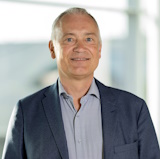
Niels Buus Kristensen, Senior Researcher, Institute for Transport Economics, Oslo
He holds a PhD from the University of Copenhagen and has through his career worked both in the academic and consultancy sector. His main field of expertise is transport economics and policy and with particular focus on strategic climate change abatement policy. He has participated as appointed expert in several government commissions, boards and advisory councils on transportation topics as well climate change, both in Denmark, Norway and for the European Commission. He is also the expert on transportation in the Danish Council of Climate Change since 2015.
Niels will give a lecture on Road transport- update on status and future expectations.
08.30 - 09.00

Claus Maarup Thye, Project Engineer/Operational Advisor, Arcadia eFuels
Work areas for Arcadia eFuels:
- Technical responsible for Arcadia eFuels’ plant at Vordingborg harbour, Masnedø
- Involved in everything from personnel matters, obtaining permits, technical problem solving and dealing with internal and external partners
Work experience from FLSmidth, Maersk Oil/Total, Nykøbing Sugar Factory within technical issues, optimisation tasks and project work. PhD and process engineer from DTU.
Claus will give a lecture on E-SAF - sustainable aviation fuel made from CO2 and hydrogen - update on progresss of the first production facility.
09.00 - 09.30

Mads Friis Jensen, Chief Commercial Officer and co-founder, Blue World Technologies.
MSc in Engineering, INSEAD Business Alumni
Experienced commercial executive and leader with a focus on bringing fuel cell technology to global markets. Background in fuel cells from Schneider Electric, Ballard Power Systems and SerEnergy. Build up of global Sales & Service organisation for the stationary fuel cell segment with a network of key customers and partners. Pioneer in methanol fuel cell mobility building several vehicles and vessels together with global OEM’s.
Mads will give a lecture on Deep Sea Shipping - new promising propulsion technique & carbon capture onboard the ship.
Solutions to climate change: Circular economy and waste management
Video of today's webinar
Søren Kristiansen's presentation: E-plastic: Update on perspectives and plans of e-plastic production from methanol
Henrik Wenzel's presentation: Circular economy: The challenge and possibilities of closing the system
08.00 - 08.30

Søren Kristiansen, Senior Director of Technology, Materials, Engineering and Quality, the LEGO Group.
Creation of joy and creativity through materials - this has been a cornerstone since Søren Kristiansen joined the LEGO Group in 1988. Materials have been the focal point in the positions he has held within R&D, Quality, Procurement, product development and now sustainable materials. Being Sr., Director of Technology Søren sets the direction for R&D, material requirements and related technologies. The LEGO Group is family-owned and privately held.
Søren will give a lecture on E-plastic: Update on perspectives and plans of e-plastic production from methanol.
08.30 - 09.00

Henrik Wenzel is professor at the Center for Life Cycle Engineering, Department of Green Technology at University of Southern Denmark. His research focuses on environmental system analysis and system design aiming at optimizing large infrastructure systems such as energy systems and waste management systems in a holistic perspective.
He has studied a large variety of alternative fuels for future transport including both biofuels and so-called electrofuels made from CO2 and hydrogen and has worked in close collaboration with key partners in aviation and shipping.
Henrik will give a lecture on Circular economy: The challenge and possibilities of closing the system.
Video of today's webinar
Jette Bredahl Jacobsen's presentation What is the overall economic implication of the green transition to a climate neutral society and what is the optimal incentive structure?
Barriers, drivers and implications: Economy
08.00 - 08.30

Jette Bredahl Jacobsen is professor in environmental and resource economics at the University of Copenhagen. She has been working with a variety of environmental topics, in particular, biodiversity and climate adaptation and mitigation. She is currently also vice chair of the European Scientific Advisory Board on Climate Change.
Jette will give a lecture on What is the overall economic implication of the green transition to a climate neutral society and what is the optimal incentive structure?
08.30 - 09.00

Michael Svarer is Professor in Economics at Aarhus University. He holds a PhD in economics from Aarhus University.
Michael Svarer has recently been Chairman of the Expert group to design a Green Tax Reform for the Danish Parliament. He has previously been chairman of the board of the Danish Economic Councils. In addition, he has served in a number of government committees. Michael’s research is theoretical and empirical labour market economics with a focus on policy evaluation of labour market policies.
Michael will give the lecture: How do we create the economic incentives for the transition of agriculture?
Video of today's webinar
Barriers, drivers and implications: Politics
08.00 - 08.30

Kristian Jensen, CEO of Green Power Denmark, a non-commercial business organization gathering around 1500 members from across the green energy value chain.
Kristian Jensen has been a member of the Danish Parliament for The Liberal Party from November 2007 to March 2021. During this period, he has been Denmark’s Minister for Foreign Affairs, Minister of Finance, and Minister of Taxation. Further, he has e.g. been a Special Envoy of Denmark (to secure seat at UN Security Council), Chairman of the Intelligence Services Committe, Spokesman on sustainability, Spokesman on private independent school and continuation school and Spokesman on UN Sustainable Development Goals.
Kristian will give a lecture on Our use of area for the green transition – Klondike or planning?
08.30 - 09.00

Bertel Maigaard is CEO and founder of BioCirc, a company specialized in the production of green energy through a range of innovative and sustainable technologies. He has extensive experience as an investor, board member, CFO and CEO in a number of Danish companies. Bertel Maigaard is an economist from the University of Copenhagen, and under Maigaard's leadership, BioCirc has completed several strategic acquisitions and expansions in the biogas sector, among others. Today, the company is one of the largest producers of biomethane globally, and in parallel, BioCirc is working to develop land-based circular energy clusters to promote a green transition locally.
Bertel will give a lecture on: Not in my backyard – how do we compensate the affected part of our population?
Video of today's webinar
Panel debate
13.00 - 14.00
- Are we on schedule?
- Dilemmas of the 2025 and 2030 milestones
- Dilemmas of the national accounting principle
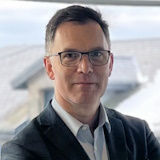
Peter Møllgaard is President at Copenhagen Business School and Chair of the Danish Council of Climate Change.
He holds a MSc degree in economics from the University of Copenhagen as well as MSc and PhD degrees from the European University Institute in Florence. He has previously worked as Dean at The Faculty of Business and Social Sciences at the University of Southern Denmark and as Professor, Head of department and Dean of research at Copenhagen Business School for 22 years. Before this he was Assistant Professor at the University of Aarhus, and he also has experience from the Danish Ministry of Finance and the Ministry of Economics and Business Affairs. He is a member of several international advisory committees and boards, the Globally Responsible Leadership Initiative (The GRLI) and Association to Advance Collegiate Schools of Business (AACSB). His research focuses on the application of industrial organization on competition policy and regulation, often to energy markets.